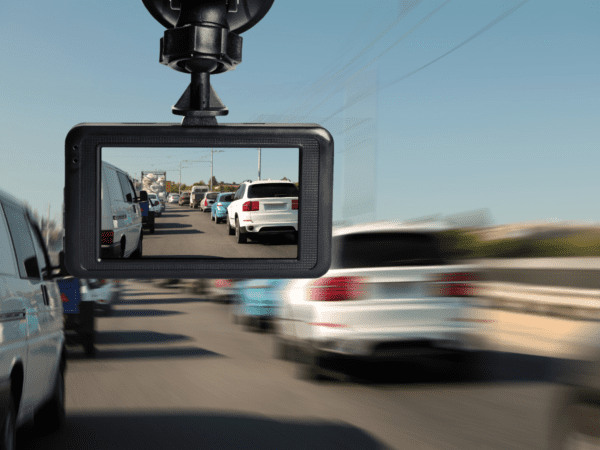How Dashcam Evidence Helps Injury Lawsuits in California

Video content is king in today’s world. With a significant portion of the population seemingly glued to screens, nearly all aspects of life are recorded in video format—from pets and dancing to social conflicts and harmful incidents.
One way video has impacted life is with dashcams. A dashcam is a video recording device placed on the dashboard of a vehicle that records events that take place on the road while driving. This blog explores the importance of dashcam evidence in personal injury cases and how it can impact personal injury lawsuits in California.
How Dashcam Footage Can Help Your Case
Typically, dashcams are constantly recording once activated. As the camera records new footage, it overwrites old footage to preserve memory. When the dashcam owner needs footage from a particular date and time, they can save the recording in question, sparing it from automatic deletion.
In particular, dashcam footage can be crucial in a car accident injury case for the following reasons:
- Establishing liability: Dashcam footage can provide a strong, clear, and objective account of events leading to an accident. As a result, anyone can view the past chain of events in real-time to determine who is responsible for the accident.
- Defending against liability: When wrongly confronted with a lawsuit alleging liability, a person can use dashcam footage as evidence depicting the true cause of the accident, whether that be another driver or some other external condition.
- Accident severity: Severe accidents typically lead to severe injuries, resulting in larger damages awards. Dashcam footage can illustrate the true nature of the accident in question, a crucial piece of evidence to support or challenge the amount of compensation ultimately awarded.
- Dual Dash Cams: Some dash cams have the capacity to record both the road ahead at a wide angle and the driver inside of the vehicle. A recording of the driver and the passengers being injured can also be crucial in establishing severity of the impact and injuries sustained by the occupants.
How to Obtain Dashcam Footage
Obtaining dashcam footage involves taking proactive steps, many of which can be achieved with the help of an experienced Glendale car accident lawyer. Some ways to obtain dashcam footage include:
- Informal communication: A person seeking dashcam footage can reach out to witnesses or the opposing party if they had an active dashcam recording at the time of the accident. This can help settle issues before they are raised during more formal legal proceedings.
- Formal legal discovery: One of the steps of a lawsuit involves “discovery.” This phase of litigation often involves exchanging evidence between the parties, who may be legally required to hand over records such as dashcam footage. Discovery methods include requests for documents and subpoenas.
The Role of Dashcam Footage in Court
Dashcam footage can be an effective means of bolstering your case in court. In particular, dashcam footage can achieve the following:
- Timeline of events: Organizing the footage to create a clear timeline of events can help the judge and jury understand the sequence of actions leading up to the accident.
- Witness credibility: Dashcam footage can challenge the testimony of other witnesses by attacking the accuracy of their statements, calling their credibility into question. Furthermore, accident reconstruction experts can rely on dashcam footage to explain technical aspects in support of your case.
- Preparing testimony: Having dashcam footage can help attorneys prepare their clients for testifying in court by assisting them in recalling events from the accident. A witness account consistent with dashcam footage can add a personal touch that speaks to a jury on a fundamental level.
Potential Challenges and Limitations of Dashcam Footage
While dashcam footage can be powerful evidence, there are potential challenges and limitations involved, such as:
- Quality and clarity: Quality issues related to the footage’s usefulness in clearly depicting events can limit how it is used in court. Obstructions within the frame of the video or poor resolution can negatively impact the credibility of the footage.
- Chain of custody: If dashcam footage is handled by individuals not authorized to do so or with the capability and interest in manipulating the video content, it could detract from its admissibility in court.
- Objections: Opposing counsel may raise legal objections to admitting dashcam footage into evidence, such as hearsay and authentication issues.
Consult an Experienced Glendale Car Accident Lawyer
Dashcam evidence has emerged as a valuable tool in personal injury cases, offering objective and compelling records to support your claim. If you’ve been involved in a car accident, you can benefit greatly from the legal assistance of a car accident attorney who is familiar with dashcam footage.
Aratta Law Firm is well-versed in utilizing invaluable evidence like dashcam footage to strengthen our clients’ cases. Our Glendale legal team is standing by to assess your case and provide compassionate and effective legal guidance.
Reach out to us at (818) 550-1111 to schedule a free consultation.